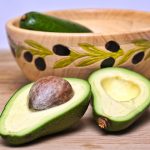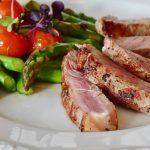Mistakes (or Are They Myths?) in Nutrition by Joan Kent, PhD
I specialize in food addictions, so I read lots about the topic. In my reading, I come across many mistaken ideas about food addiction.
Probably the most common mistake is the notion that food addiction is emotional in origin, so let’s start with that one.
“Every addiction arises from an unconscious refusal to face and move through your pain…. Whatever you’re addicted to is a cover-up for your pain.” – says Eckhart Tolle
We use food to fill the emptiness inside, says another view.
Food addictions are about anger, regret and stress. That’s still another view.
And here’s another one: Addiction to drugs is physiological, but food addiction is psychological. There’s no withdrawal, as there would be with drugs, just emotional wanting.
Well, if these mental and emotional places are where food addiction begins, getting past them must necessitate self-analysis, crying, and profound behavior change. That’s where I go glassy-eyed, but that’s me.
So What Is the Solution?
How do we get past food addiction?
The internet is filled with suggestions, not necessarily ideal. A few of them call for:
- Using mindfulness practices to “get to the other side” of a craving without succumbing to it.
- Meditating.
- Going for a walk out in nature.
- Talking to a friend.
- Snuggling under blankets to simulate the warmth and comfort we get from foods.
Obviously, nothing is wrong with these practices, but the “real” reasons for food addictions – the neurochemical, physiological ones – are ignored by these so-called solutions while we focus on our feelings.
Instead
Get on the side of brain chem. Eliminate addictive foods – the ones that trigger the neurochemical reaction of addiction. Watch the other issues fade away. Including cravings that never seem to leave.
Once you’re on solid, neurochemical ground – and it doesn’t take very long! – feel free to add any or all of the other suggestions listed above and enjoy them for what they are. Creature comforts. Delightful pastimes. Spiritual benefits. Fun.
“What we fear doing most is usually what we most need to do.” – Timothy Ferriss
“Sometimes the people around you won’t understand your journey. They don’t need to; it’s not for them.” – Anonymous
If you’d like solid support for food addiction, help is close by. Just visit LastResortNutrition.com and grab your free Addiction-Kicking Consult.
Brought to you by Dr. Joan Kent, best-selling author of Stronger Than Sugar.



